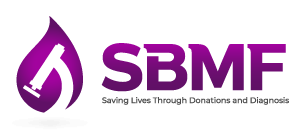Frequently Asked Questions
What are the donor requirements?
- Must be in good general health
- Must weigh at least 110 pounds
- Must be 16 years old with parental consent or 17 years old without
- Must wait 4 weeks after getting a tattoo or body piercing in a regulated establishment or state and must be fully healed.
- Must not be pregnant
- Must be symptom free of cold or flu for at least 72 hours
What is the most common type of blood donation?
Whole blood donation is the most common type of blood donation. During this process approximately one pint of whole blood is donated. Donating whole blood is a safe and simple process that takes about 45 minutes from registration time to enjoying refreshments.
How often can I donate blood?
When donating one unit of whole blood, donors can donate every 56 days or up to six times per year.
What is meant by Double Red?
Double Red cell donors help save two patients with their single automated red cell donation because it yields enough for two red cell units. Double red cell donors can donate every 112 days or 3 times a year. The double red cell donation takes only 20 minutes longer than a whole blood donation. Qualifications for double red donors include a higher minimum height and weight requirement and a higher hematocrit (iron level) than needed for donating a single unit.
I have a common blood type, does it matter if I donate because it isn’t rare?
Whatever your blood type, it’s vital for saving lives. If your blood type is common, that means there is a higher demand for it. When your blood type is less common, there are less donors who can make that type available when needed.
If I donate blood, will it deplete my own blood supply?
The average human has over 10 pints of blood in their body. After a blood donation, a person’s blood volume typically returns to normal in around 24 hours. Donors need to wait 56 days in between donations because it takes 4-6 weeks for red blood cells to fully develop.
I have high blood pressure, can I still donate?
Your blood pressure is taken during screening. As long as your top number is below 180 and your bottom number is below 100, it is safe for you to donate. You are still eligible to donate even if you are on blood pressure medication.
Where does the blood go that is collected at SBMF?
We supply several local hospitals with blood products including Beacon (Memorial), St. Joseph Regional Medical Center and Elkhart General Hospital.
I’m thinking about hosting a blood drive at my work. What do I need to do?
We typically like to have about 20 people signed up on a list for a blood drive in order to send our crew and bloodmobile out. Once you have gauged the interest of your group, contact either Colleen Hahn at chahn@sbmf.org or 574-204-4132 or Leslie Crawford at lcrawford@sbmf.org or 574-204-4393.
How Can We Help?
SBMF offers pathology services to hospitals, physicians, and also serves as the community blood bank. If you need assistance or have any questions regarding these services, please complete the form below. Our team will promptly get in touch with you.
